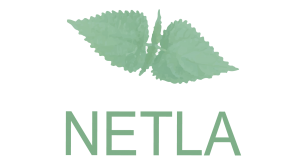Being at home with children during the restriction on public gathering during COVID-19
the experiences of parents of preschool children
DOI:
https://doi.org/10.24270/netla.2023/11Abstract
The public gathering restriction was first imposed in Iceland in March 2020. Special regulations were set for schools; colleges and universities were closed, and distance learning was almost exclusively used. Preschools and elementary schools were kept open but had to follow certain rules. However, the government encouraged parents to keep their children at home if possible. The rapid spread of COVID-19 had triggered a state of emergency that was a matter of international concern, i.e., regarding various challenges to the physical and mental health of people around the world. These restrictions were not eased until May of the same year. The ban on gatherings made an impact on various aspects of life: people had to work from home as much as possible and some parents made the decision to keep their children at home as well, e.g., due to epidemic prevention or underlying illnesses. This led to families being isolated for several weeks. Society is built on interacting systems, which changed because of COVID-19. Families and children had to adapt quickly to the changes that took place, often with limited information, while at the same time they had little influence on external factors related to the epidemic itself. Families were in a unique situation that no one had foreseen, but the gathering restriction had great impact on children’s schoolwork, parents’ work, leisure time and spending time with friends and relatives.
The research presented here focuses on the well-being of young children during the time of COVID-19, when most of society was locked down and schooling changed for most children. Qualitative research was used where interviews were carried out with 12 families of preschool children. The interviews were conducted between March and May 2020, with each of the three researchers following four families. Four interviews were conducted with each family.
The study explores what the parents thought important to consider during these weeks, regarding challenges, solutions at home in everyday life, and how it was to deal with these challenges. The role of the preschool was also examined and what effect preschool closures, or absence from school, had on the children. At the same time, the parents looked ahead and underlined what could be learned from the experience regarding the well-being of children both today and in the future.
The results show that the epidemic had a significant influence on the families, even though the parents considered the impact on the children to be minor. Family life changed in many ways, but the parents agreed that routine and a well-defined daily structure were greatly important, as well as having enough activities for the children, including outdoor activities, but play and creative activities were also a big part of everyday life. The majority of the parents said that this time had given them the opportunity to get to know their children better and, in many ways, it was good to be able to reduce external stimuli, even though at the same time the families were worried about the coronavirus situation and the well-being and health of family members and other relatives.
The results of the study highlight that there was a lot of stress in each family during these times. However, the resources and cohesion of the families made this experience easier to bear, and it was even possible to look back on this time in a positive way. The study also shows that support from schools or other professionals should be more accessible, as some of the families felt quite isolated. That could indicate the need for someone outside the family to share worries with, especially when facing surrounding threats and with intensified stress. Here, the kindergarten could be seen as a more supportive entity for parents, especially those in a vulnerable situation. The epidemic highlighted the value and importance of preschool, and that children should always have access to quality kindergarten and enjoy stability in everyday life with their well-being placed first.
Downloads
Published
Issue
Section
License
Copyright (c) 2023 Netla - english edition

This work is licensed under a Creative Commons Attribution 4.0 International License.
